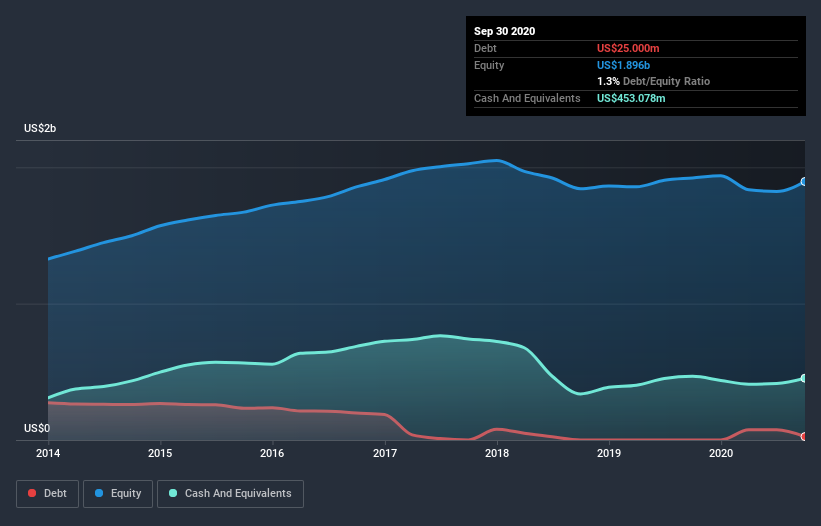Is Gentex (NASDAQ:GNTX) A Risky Investment?
Legendary fund manager Li Lu (who Charlie Munger backed) once said, 'The biggest investment risk is not the volatility of prices, but whether you will suffer a permanent loss of capital.' When we think about how risky a company is, we always like to look at its use of debt, since debt overload can lead to ruin. We can see that Gentex Corporation (NASDAQ:GNTX) does use debt in its business. But is this debt a concern to shareholders?
Why Does Debt Bring Risk?
Debt assists a business until the business has trouble paying it off, either with new capital or with free cash flow. Ultimately, if the company can't fulfill its legal obligations to repay debt, shareholders could walk away with nothing. However, a more common (but still painful) scenario is that it has to raise new equity capital at a low price, thus permanently diluting shareholders. Of course, debt can be an important tool in businesses, particularly capital heavy businesses. The first thing to do when considering how much debt a business uses is to look at its cash and debt together.
View our latest analysis for Gentex
What Is Gentex's Debt?
The image below, which you can click on for greater detail, shows that at September 2020 Gentex had debt of US$25.0m, up from none in one year. However, it does have US$453.1m in cash offsetting this, leading to net cash of US$428.1m.
A Look At Gentex's Liabilities
We can see from the most recent balance sheet that Gentex had liabilities of US$236.5m falling due within a year, and liabilities of US$60.4m due beyond that. Offsetting these obligations, it had cash of US$453.1m as well as receivables valued at US$268.5m due within 12 months. So it actually has US$424.7m more liquid assets than total liabilities.
This short term liquidity is a sign that Gentex could probably pay off its debt with ease, as its balance sheet is far from stretched. Simply put, the fact that Gentex has more cash than debt is arguably a good indication that it can manage its debt safely.
The modesty of its debt load may become crucial for Gentex if management cannot prevent a repeat of the 30% cut to EBIT over the last year. When it comes to paying off debt, falling earnings are no more useful than sugary sodas are for your health. The balance sheet is clearly the area to focus on when you are analysing debt. But ultimately the future profitability of the business will decide if Gentex can strengthen its balance sheet over time. So if you're focused on the future you can check out this free report showing analyst profit forecasts.
Finally, while the tax-man may adore accounting profits, lenders only accept cold hard cash. Gentex may have net cash on the balance sheet, but it is still interesting to look at how well the business converts its earnings before interest and tax (EBIT) to free cash flow, because that will influence both its need for, and its capacity to manage debt. During the last three years, Gentex generated free cash flow amounting to a very robust 95% of its EBIT, more than we'd expect. That puts it in a very strong position to pay down debt.
Summing up
While it is always sensible to investigate a company's debt, in this case Gentex has US$428.1m in net cash and a decent-looking balance sheet. And it impressed us with free cash flow of US$388m, being 95% of its EBIT. So we don't have any problem with Gentex's use of debt. There's no doubt that we learn most about debt from the balance sheet. However, not all investment risk resides within the balance sheet - far from it. To that end, you should be aware of the 1 warning sign we've spotted with Gentex .
When all is said and done, sometimes its easier to focus on companies that don't even need debt. Readers can access a list of growth stocks with zero net debt 100% free, right now.
This article by Simply Wall St is general in nature. It does not constitute a recommendation to buy or sell any stock, and does not take account of your objectives, or your financial situation. We aim to bring you long-term focused analysis driven by fundamental data. Note that our analysis may not factor in the latest price-sensitive company announcements or qualitative material. Simply Wall St has no position in any stocks mentioned.
Have feedback on this article? Concerned about the content? Get in touch with us directly. Alternatively, email editorial-team (at) simplywallst.com.

